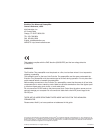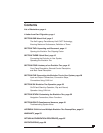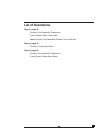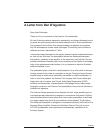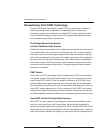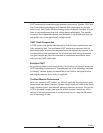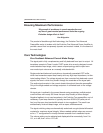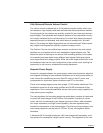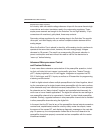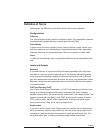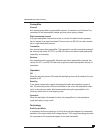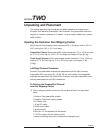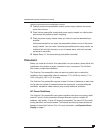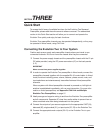
6
Ensuring Maximum Performance
“My pursuit of excellence in sound reproduction and
my love of great musical performance fuels the ongoing
Evolution design effort at Krell.”
Dan D’Agostino
The pr
oduct of breakthrough Krell technology, the Evolution Two Monaural
Preamplifier works in tandem with the Evolution One Monaural Power Amplifier to
provide a sound that is supremely dynamic and musical. Indeed, it is the sound of
the music itself.
Core Technologies
Zero Feedback Balanced Current Mode Design
The signal path is fully complementary and fully balanced from input to output. All
transistors operate in Class A mode. CAST inputs drive a newly designed current-
mode balanced input stage, which uses a unique topology able to reject com-
mon-mode input noise over an unusually wide bandwidth.
Single-ended and balanced inputs drive a dynamically-cascoded JFET buffer,
which has tremendous open-loop linearity and very high input impedance, to elim-
inate loading effects. The voltage signals are then converted into balanced current
signals, the form in which they remain through the remainder of the signal path.
The audio signal remains in the current domain throughout the entire preamplifier.
Only at the single-ended and voltage outputs is it converted back to the voltage
domain.
All signal gain is realized in the current domain using proprietary multiple-output
current mirrors with nearly 500 times the open loop linearity of other designs.
Negative feedback is not used anywher
e in the Evolution T
wo pr
eamplifier, nor is it
necessary. Open-loop distortion is typically less than 0.005% (50 parts per mil-
lion), and the open loop bandwidth extends to two megahertz. The result is an
extraor
dinarily wide and deep image, with an open, ef
for
tless sound.
The signal switching r
elays ar
e hermetically sealed and use gold-plated bifurcated
contacts for maximum signal integrity. Where needed multiple relays are connect-
ed in a “T” configuration to vir
tually eliminate cr
osstalk fr
om unselected inputs.
The volume setting can be adjusted and displayed either numerically
, from 0 to
151, or in dB, from –inf to +12.0 dB.
(SECTION ONE: About Krell continued)



